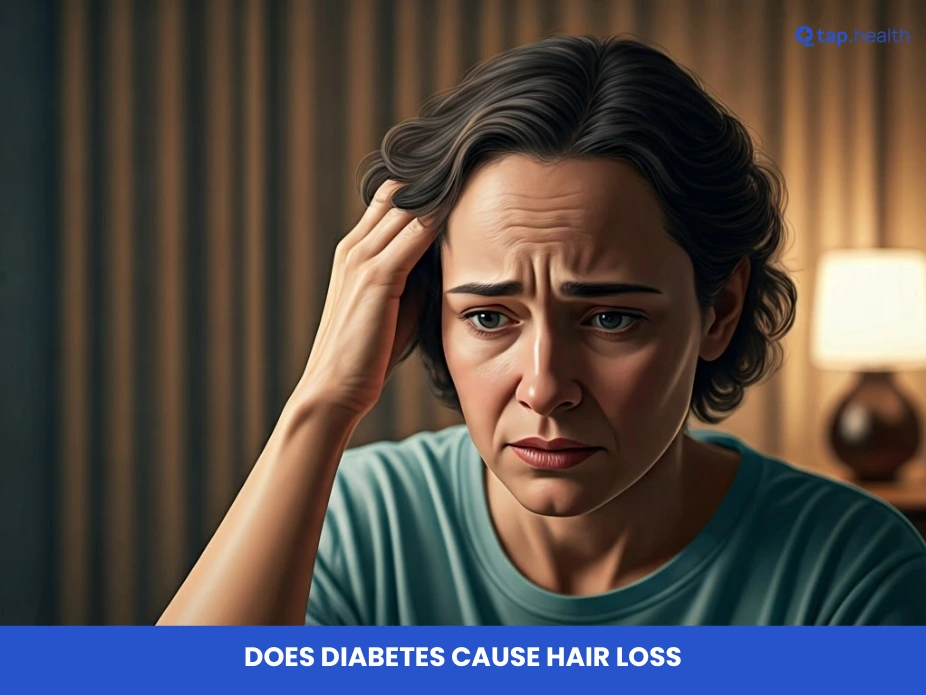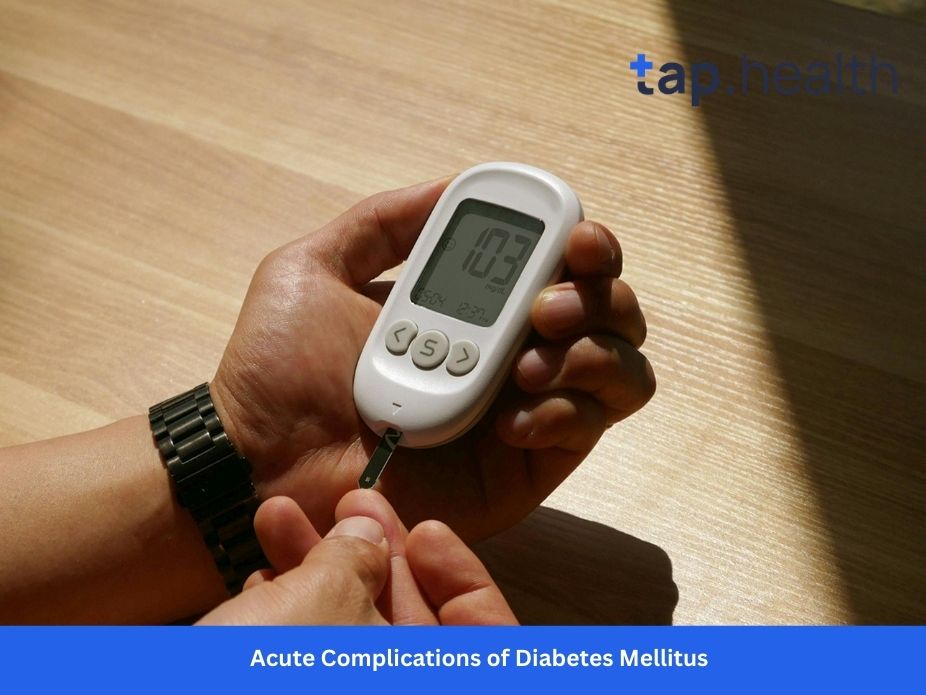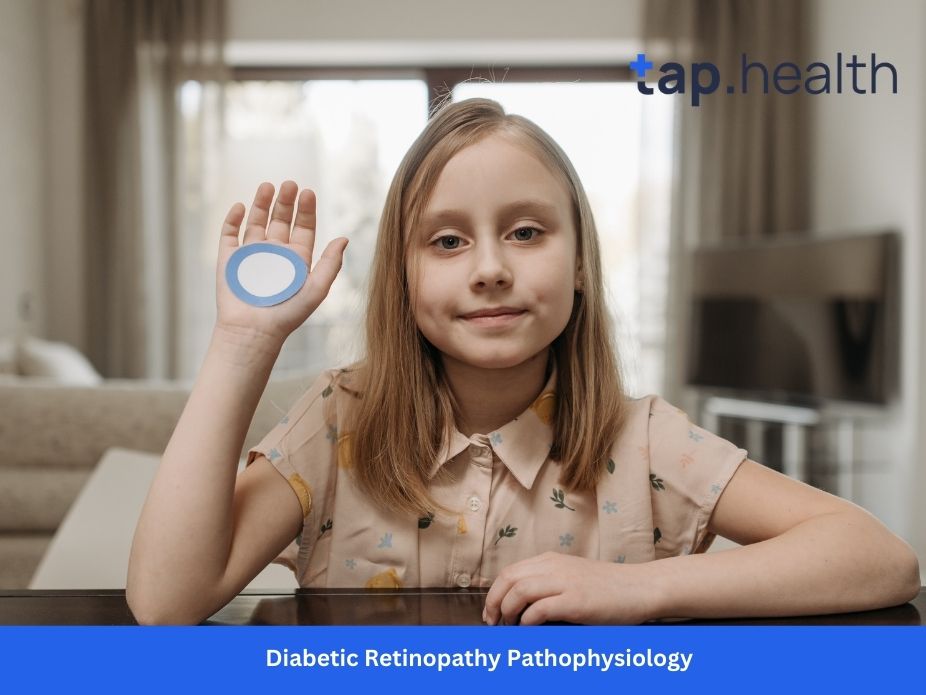Diabetes is a condition that can impact your health in many ways. One of these ways is through hair loss. Many people with diabetes may face hair loss either because of the condition itself or due to changing blood sugar levels. In this blog post, we will look at how diabetes connects to hair loss. We will answer common questions and discuss ways to manage this issue. Understanding how diabetes affects hair health is important for taking early action and feeling better overall.
Exploring the Connection Between Diabetes and Hair Loss
Hair loss is not usually the first thing that comes to mind when people think about diabetes, but it can be a clear and upsetting sign. To understand why this happens, we need to see how diabetes affects the body.
Diabetes changes the way the body uses sugar (glucose) for energy. This change can cause issues in different parts of the body, including the complex systems that are important for hair growth.
The impact of diabetes on overall health
Diabetes is a long-term illness that affects how the body controls blood sugar. This condition can lead to many health issues, including hair loss.
High blood sugar levels from diabetes can harm blood vessels all over the body. Blood vessels carry oxygen and important nutrients to every cell, including those in the hair follicles. If circulation is weak, it can hurt hair growth and may cause thinning or hair loss.
Diabetes can also affect the immune system. This can raise the chances of getting autoimmune diseases. Sometimes, the immune system might mistakenly target hair follicles, causing a problem called alopecia areata, which leads to patchy hair loss.
How diabetes can lead to hair thinning and loss
High blood sugar levels can affect hair thinning and loss in several ways. First, when glucose levels are too high, they can harm the small blood vessels that feed the hair follicles.
These tiny blood vessels carry the nutrients and oxygen that hair follicles need to grow healthy hair. If high blood sugar damages these blood vessels, hair follicles may not get the support they need. This can cause the hair shaft to weaken and lead to more hair thinning or hair loss.
What type of diabetes causes hair loss?
Both type 1 and type 2 diabetes can lead to hair loss, but how they affect it is different. In type 1 diabetes, the immune system attacks and damages the cells that make insulin in the pancreas. This can lead to more autoimmune issues, such as alopecia areata.
Alopecia areata attacks hair follicles, making them shrink and stop hair growth. In type 2 diabetes, the link to autoimmune issues is weaker. However, high blood sugar levels over time can still harm blood vessels. This affects blood flow and stops nutrients from reaching hair follicles, which can cause hair loss.
The Science Behind Hair Loss in Diabetics
Hair loss linked to diabetes is often caused by the changing levels of blood sugar. Poor blood circulation also plays a role, as well as possible issues in the hair growth cycle.
By understanding these factors, we can better address hair loss in people with diabetes.
The role of blood circulation in hair health
Healthy hair needs good blood supply to the scalp. Small blood vessels, called capillaries, play a key role in this process. These tiny vessels create a network that brings oxygen and important nutrients to hair follicles. This is essential for hair growth and keeping hair healthy.
However, high blood sugar levels from diabetes can harm these fragile capillaries. When this happens, blood circulation suffers. Poor circulation means hair follicles get fewer essential nutrients. This can make the hair weaken, shrink, and could lead to hair loss.
To keep blood sugar levels in check, good diabetes management is very important. This helps support healthy blood circulation and, in turn, encourages continuous hair growth.
Understanding the effects of high blood sugar on hair follicles
High blood sugar can affect the normal hair growth cycle. This cycle has different stages: anagen (growth), catagen (transitional), and telogen (resting).
When glucose levels are high, it can make the anagen phase shorter. This may slow down hair growth and cause more hair follicles to move to the telogen phase too early.
As a result, you might notice more hair shedding and thinning hair. Also, high blood sugar can cause oxidative stress. This stress can damage hair follicles and hurt healthy hair growth.
Common Types of Hair Loss Associated with Diabetes
The types of hair loss that can happen with diabetes are different and usually connect to the reasons for the condition. Two common types are telogen effluvium and alopecia areata.
It is important to know the traits of each type. This knowledge helps in finding the right ways to manage them.
1.Telogen effluvium and its relation to diabetes
Telogen effluvium is a common type of hair loss. It shows up as a lot of hair falling out from the scalp. This happens when the hair growth cycle is interrupted. A bigger number of hair follicles go into the telogen, or resting, phase too soon.
For people with diabetes, changes in blood sugar levels, hormonal imbalances, or the stress of managing a chronic condition can trigger or worsen telogen effluvium.
It is important to address these underlying issues. This means improving blood sugar control and managing stress levels. Doing this can help reduce hair shedding and encourage hair growth.
2.Alopecia areata and diabetic patients
Alopecia areata is an autoimmune disorder. In this condition, the immune system mistakenly attacks hair follicles. This reaction stops hair growth, which causes patchy hair loss on the scalp. It can also affect other parts of the body.
We do not know the exact cause of alopecia areata. However, it may be linked to a mix of genetic and environmental factors. People who have autoimmune disorders, like type 1 diabetes, may have a higher chance of getting alopecia areata.
Treatment usually includes medications. These aim to reduce the immune response and help promote hair regrowth.
Does diabetes cause hair loss
While not everyone with diabetes loses their hair, there is a strong link between hair loss and diabetes. When blood sugar levels are not well-controlled, they can affect hair in different ways.
High blood sugar can harm blood vessels. This can slow down blood flow to hair roots and interrupt the hair growth cycle. As a result, people may notice more hair falling out, thinning, or poor hair health. It’s important to know that good diabetes management and stable blood sugar levels can lower the chance of hair loss and help hair grow healthier.
Is Hair Loss a Symptom of Diabetes?
Hair loss by itself isn’t a clear sign of diabetes. However, it can point to health problems, including diabetes, especially when you have other known signs.
If you are losing hair for no clear reason and have other symptoms like being very thirsty, urinating often, losing weight without trying, having blurred vision, or slow-healing wounds, you should talk to a doctor. They can help check for the diagnosis of diabetes. Finding diabetes early and managing it is important to avoid problems, which can include hair loss.
Preventive Measures and Lifestyle Changes
Managing diabetes well is very important to help prevent or reduce hair loss. Changing your lifestyle, especially focusing on controlling blood sugar and being healthy, can make a big difference for your hair.
By taking these steps, people with diabetes can improve their health and support healthy hair growth.
Importance of controlling blood sugar levels
Maintaining stable blood sugar levels is very important for managing diabetes. Good diabetes management helps reduce the risk of problems like hair loss.
When glucose levels stay high, the body’s cells, including those in hair follicles, can suffer. High sugar can damage blood vessels and hurt blood flow. This can mess up the hair growth cycle and lead to hair loss.
By taking prescribed medicines and eating a balanced diet, people with diabetes can manage their condition better. Regular exercise and checking blood sugar levels as their healthcare provider suggests also help. These steps can lead to better blood sugar control, which is key for healthy hair growth and overall well-being.
Nutritional tips for healthy hair
Eating a balanced diet is important for good health and healthy hair growth.
Add foods that are high in protein, which helps build hair. Good options include lean meats, poultry, fish, beans, lentils, and tofu. Also, eat foods that are high in biotin. This vitamin is key for hair growth and can be found in eggs, nuts, and seeds.
Iron, zinc, and folic acid are important for hair health too. Make sure to include leafy greens, whole grains, and fortified cereals in your meals. If you think you might lack certain nutrients, talk to a healthcare professional or a dietitian. They can help you decide if you need any supplements.
How diabetes affects the hair growth cycle
Hair growth happens in a cycle with three main steps: anagen (growth), catagen (transitional), and telogen (resting). Each step is important for keeping your hair healthy.
But when blood sugar levels are high, especially with diabetes, this cycle can be affected. High blood sugar can push more hair into the telogen phase, which is the resting phase. This can lead to more hair falling out than normal.
What should I do if I notice hair loss due to diabetes?
If you’re experiencing hair loss and suspect it might be related to diabetes, seeking guidance from a healthcare provider is crucial. They can assess your overall health, review your diabetes management plan, and recommend appropriate steps to address hair loss concerns.
Here’s a simple guide on what you can do:
| Step | Action |
| Consult a healthcare professional | Discuss your concerns and medical history |
| Review Medications | Identify any medications potentially contributing to hair loss |
| Optimize Blood Sugar Control | Follow your diabetes management plan diligently |
| Dietary Changes | Ensure a balanced diet rich in hair-healthy nutrients |
| Stress Management | Implement stress reduction techniques |
| Explore Treatments | Discuss potential treatment options with your healthcare provider |
Remember, addressing hair loss often involves a multifaceted approach tailored to your individual needs and health status.
Other causes of hair loss
Diabetes can lead to hair loss, but it’s not the only reason. Many other things can affect hair health. This can cause thinning, breaking, or even baldness.
It is important to find out what is causing the hair loss. This helps to choose the best treatment options and deal with the problem in a complete way.
1.Stress
Navigating daily life can stress us out in different ways. It’s normal to feel short-term stress, but long-term stress can hurt our bodies and minds. This can also show up in surprising ways, like hair loss.
When we feel stress for a long time, our adrenal glands make too much cortisol, which is known as the “stress hormone.” High levels of cortisol can change how our hair grows. It can force hair follicles into a resting phase too soon, causing them to shed more hair or thin out.
It’s important to manage stress for our overall health. Doing activities that reduce stress, like yoga, meditation, or spending time in nature, can help lower cortisol levels. This can also help decrease stress-related hair loss and improve hair health.
2.Hormones
Hormones are very important for many body functions, including hair growth. Changes in hormone levels can greatly affect hair health. This can result in different textures, thickness, and even cause hair loss.
Hormonal imbalances can happen during pregnancy, menopause, or due to thyroid issues. These imbalances can disturb the hair follicles, which affects hair growth patterns.
If you see sudden or major changes in your hair, along with other hormonal symptoms like irregular periods, weight gain, or tiredness, it is important to see a healthcare professional. They can help find and fix any hormonal imbalances you may have.
3.Alopecia areata
Alopecia areata is an autoimmune disorder. It affects hair follicles and causes hair loss in patches. In this condition, the immune system falsely thinks hair follicles are harmful. This leads to attacks on them and causes inflammation.
The exact reason for alopecia areata is not known. However, genes and outside factors may play a part. This disorder can happen to anyone, but it often starts in childhood or teen years.
There is no cure for alopecia areata right now. Still, there are treatments to help manage symptoms. These treatments can help with hair regrowth and also support people emotionally with the effects of hair loss.
4.Poor circulation
Healthy blood circulation is very important for our overall health. It also helps take care of our hair.
When blood flows well, hair follicles get enough oxygen and nutrients. This is necessary for healthy hair growth. If circulation is poor, which can happen because of conditions like diabetes, peripheral artery disease, or habits like smoking, hair follicles might not get what they need.
When this happens, it can cause the hair to become weak, break easily, and eventually lead to hair loss. To help improve circulation, it’s important to exercise regularly, eat healthy foods, and take care of any health issues. This way, hair follicles can get the support they need for good hair growth.
Will hair loss from diabetes grow back?
The good news is that hair loss from diabetes can often be fixed. This is especially true when it is noticed early and treated well. By keeping blood sugar levels in check, improving blood flow, and fixing any nutrition problems, hair roots can heal and start growing again.
Even though it takes time and patience to reverse hair loss, using a complete plan that combines medical care with lifestyle changes increases the chances of getting healthy hair back. If there is a lot of hair loss, solutions like hair transplants are an option. However, it is important to talk to a qualified expert. They can help you know if this is a good fit for you and what the possible risks and benefits are.
Typical signs and symptoms of diabetes
Diabetes is a long-term health issue that affects many people around the world. It can show different signs and symptoms. If you spot these early, you can get a diagnosis and start managing it quickly.
Some common signs are:
- Increased thirst
- Frequent urination
- Unexplained weight loss
- Increased hunger
- Fatigue
- Blurred vision
- Slow-healing sores
- Frequent infections
These symptoms happen because of high glucose levels in the blood. This could be due to the body not making enough insulin or the cells not responding well to insulin.
If you notice these signs, it is very important to see a healthcare professional. They can do the right tests and provide a diabetes diagnosis.
How can I prevent hair loss?
Taking steps to prevent hair loss is better than trying to treat it later. This way, you can keep your hair healthy. There are many changes you can make in your life that can help your hair and scalp.
Making changes in your diet and managing stress can lower your chances of losing hair and help you feel better overall.
1.Wearing hair down or in loose updos
Wearing hairstyles that pull on your hair can cause a type of hair loss called traction alopecia. This happens when hair follicles face stress for a long time, which can damage them. This can lead to scalp hair loss and breakage over time.
Tight ponytails, braids, cornrows, and hair extensions can cause traction alopecia, especially if you wear them often and for long periods.
It is important to choose hairstyles that lessen the tension on your hair. Try to wear your hair down, in loose updos, or change your hairstyle often. This will help avoid putting stress on the same parts of your scalp and promote your hair health.
2.Getting blood sugar under control
Managing diabetes well is not only about handling a long-term issue; it is also about keeping your overall health good. A key part of managing diabetes is keeping blood sugar levels steady.
High blood sugar levels over time can lead to many harmful effects. This includes harm to blood vessels and nerves. The tiny blood vessels that give nutrients to hair follicles can also be affected. This can hurt hair health and lead to hair loss.
Following a plan for diabetes management is very important. This plan should have a balanced diet, regular exercise, taking any prescribed medications, and checking blood sugar levels often. By doing these things, people can lower their chances of serious problems from uncontrolled diabetes, including hair loss.
3.Avoid using heat and chemicals to style hair
Frequent heat styling and chemical treatments can harm your hair. They can make hair strands weak, leading to breakage and hair thinning.
Using hair dryers, curling irons, straighteners, and strong chemical relaxers often can remove the natural oils in your hair. This can also hurt the protective layer, called the cuticle.
To keep your hair healthy, try to air dry your hair when you can. Use heat protectant sprays before you style your hair. Also, reduce how often you use chemical treatments. This can help protect your hair and support better hair health.
4.Brush hair with a wide-tooth comb
Adopting good hair care habits can greatly help with normal hair growth and overall hair health. One important habit is to use a wide-tooth comb, especially for getting rid of tangles.
Wide-tooth combs are better than brushes with tightly spaced bristles. They slide through your hair smoothly, which helps avoid breakage and lowers stress on the scalp.
This is especially crucial for people who have central scalp hair loss or fragile hair. Pulling too hard can make hair loss worse. So, remember that being gentle with your hair is essential for healthy hair growth and to avoid damage.
Treatment of hair loss
The way we treat hair loss depends on what causes it, how serious it is, and the person’s health. If hair loss happens due to medical issues like diabetes, treating that condition and keeping blood sugar levels in check is very important.
Besides changing lifestyles and managing diabetes, there are some treatment options to think about. These can include over-the-counter products like minoxidil (Rogaine), prescription medication like finasteride (Propecia), and various procedures such as platelet-rich plasma (PRP) therapy or hair transplants.
Frequently Asked Questions 0n Does diabetes cause hair loss
1.Can improving diabetes management slow down hair loss?
Yes, managing diabetes well and keeping blood sugar stable can really help hair health. This can slow down hair loss and may even help hair regrow.
2.Are certain diabetes medications known to cause hair loss?
Some diabetes medications can cause hair loss, even though it is rare. If you think your medicine is affecting your hair health, talk to your doctor. They can help you find other options or make changes if needed.
3.What does hair loss from diabetes look like?
Diabetes hair loss can show up as overall hair thinning, more hair falling out, or even pattern baldness. If you notice hair loss, it may be a sign of other diabetes symptoms. It’s important to talk to your doctor if you see these signs of hair loss.
4.Does type 2 diabetes affect your hair?
Type 2 diabetes can hurt hair health, especially if it’s not well managed. This condition can cause changes in blood sugar levels, leading to hair loss. It may also disrupt the hair growth cycle.
5.Will my hair grow back if I stop eating sugar?
Cutting out sugar by itself won’t make your hair grow back. However, eating less sugar and having a balanced diet can help your blood sugar levels and improve hair health.
6.Will there be hair fall even with controlled diabetics?
Even people who manage their diabetes can still have some hair loss. This can happen because of other reasons like genes, hormones, or stress. Blood sugar levels are just one part of what affects hair growth.



